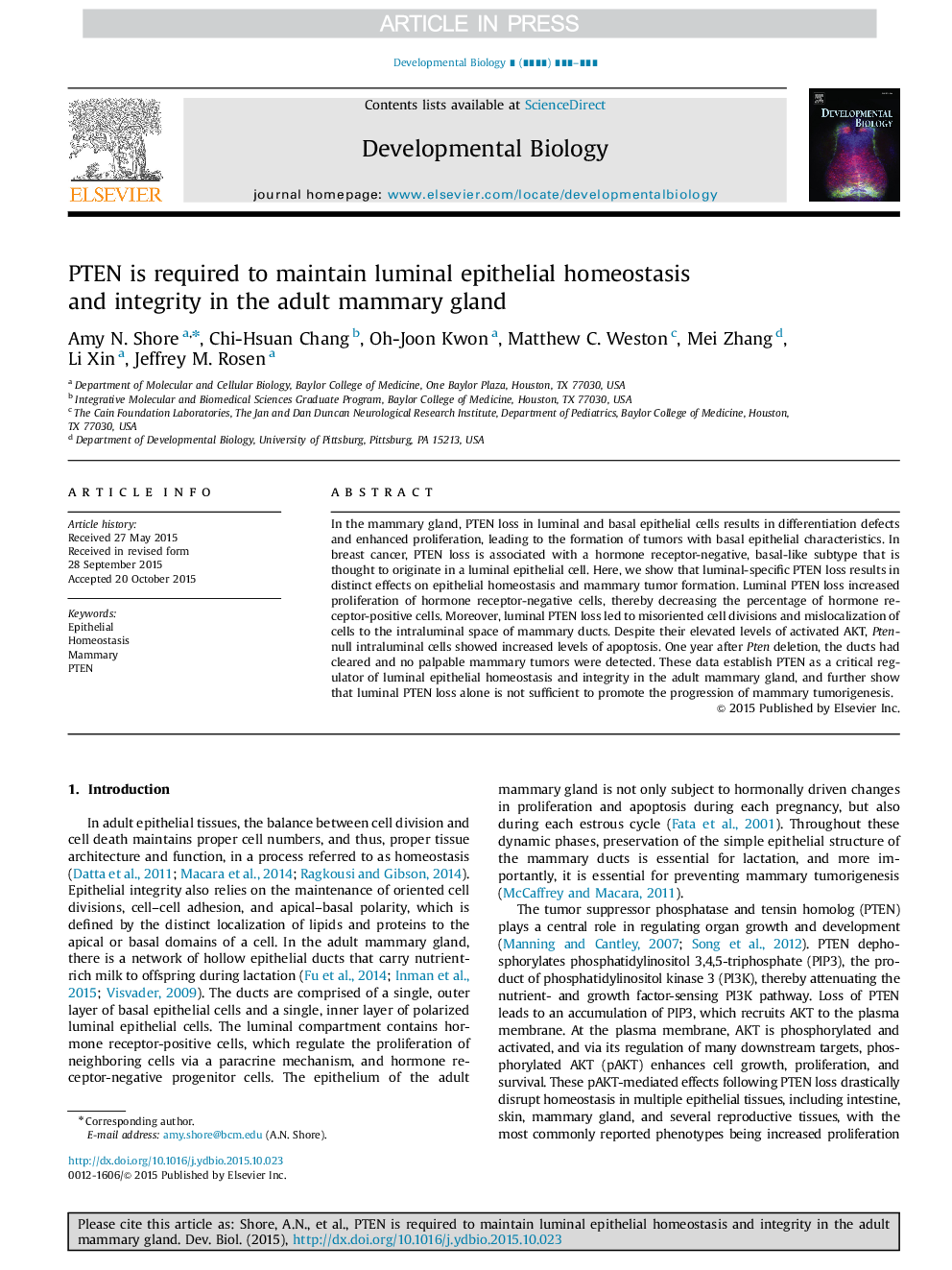| Article ID | Journal | Published Year | Pages | File Type |
|---|---|---|---|---|
| 10931268 | Developmental Biology | 2016 | 16 Pages |
Abstract
In the mammary gland, PTEN loss in luminal and basal epithelial cells results in differentiation defects and enhanced proliferation, leading to the formation of tumors with basal epithelial characteristics. In breast cancer, PTEN loss is associated with a hormone receptor-negative, basal-like subtype that is thought to originate in a luminal epithelial cell. Here, we show that luminal-specific PTEN loss results in distinct effects on epithelial homeostasis and mammary tumor formation. Luminal PTEN loss increased proliferation of hormone receptor-negative cells, thereby decreasing the percentage of hormone receptor-positive cells. Moreover, luminal PTEN loss led to misoriented cell divisions and mislocalization of cells to the intraluminal space of mammary ducts. Despite their elevated levels of activated AKT, Pten-null intraluminal cells showed increased levels of apoptosis. One year after Pten deletion, the ducts had cleared and no palpable mammary tumors were detected. These data establish PTEN as a critical regulator of luminal epithelial homeostasis and integrity in the adult mammary gland, and further show that luminal PTEN loss alone is not sufficient to promote the progression of mammary tumorigenesis.
Keywords
Related Topics
Life Sciences
Biochemistry, Genetics and Molecular Biology
Cell Biology
Authors
Amy N. Shore, Chi-Hsuan Chang, Oh-Joon Kwon, Matthew C. Weston, Mei Zhang, Li Xin, Jeffrey M. Rosen,
